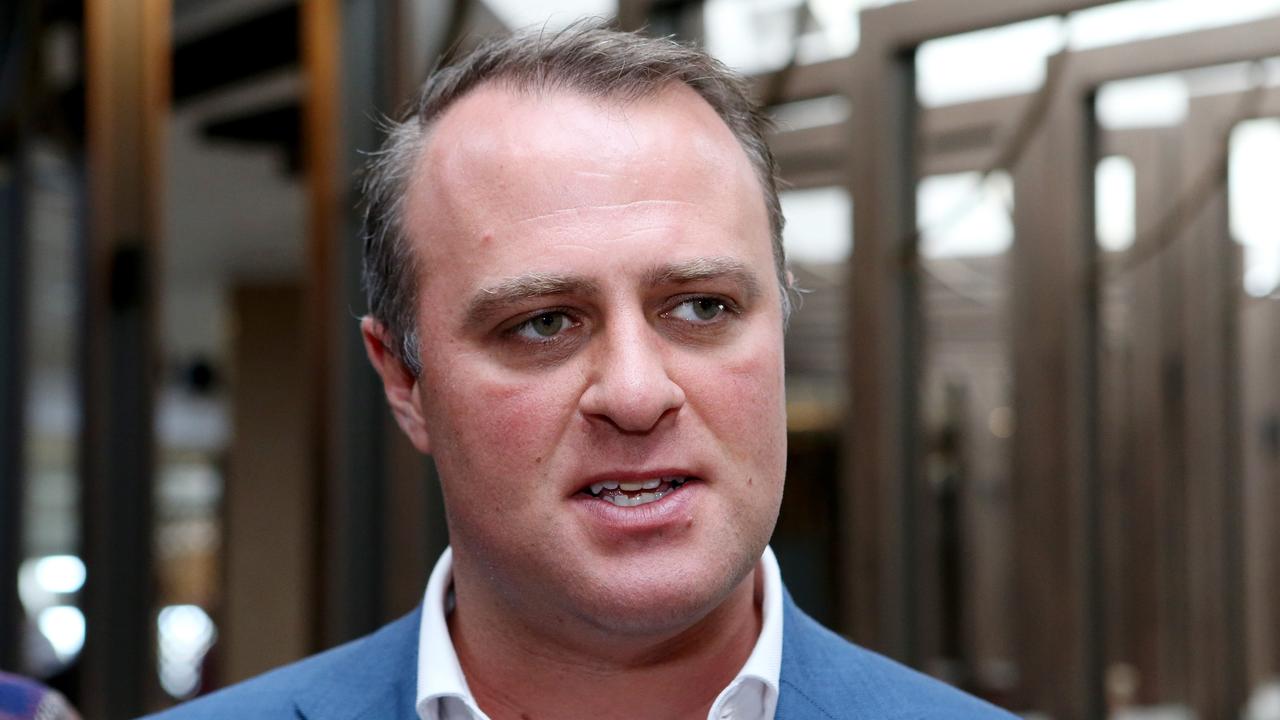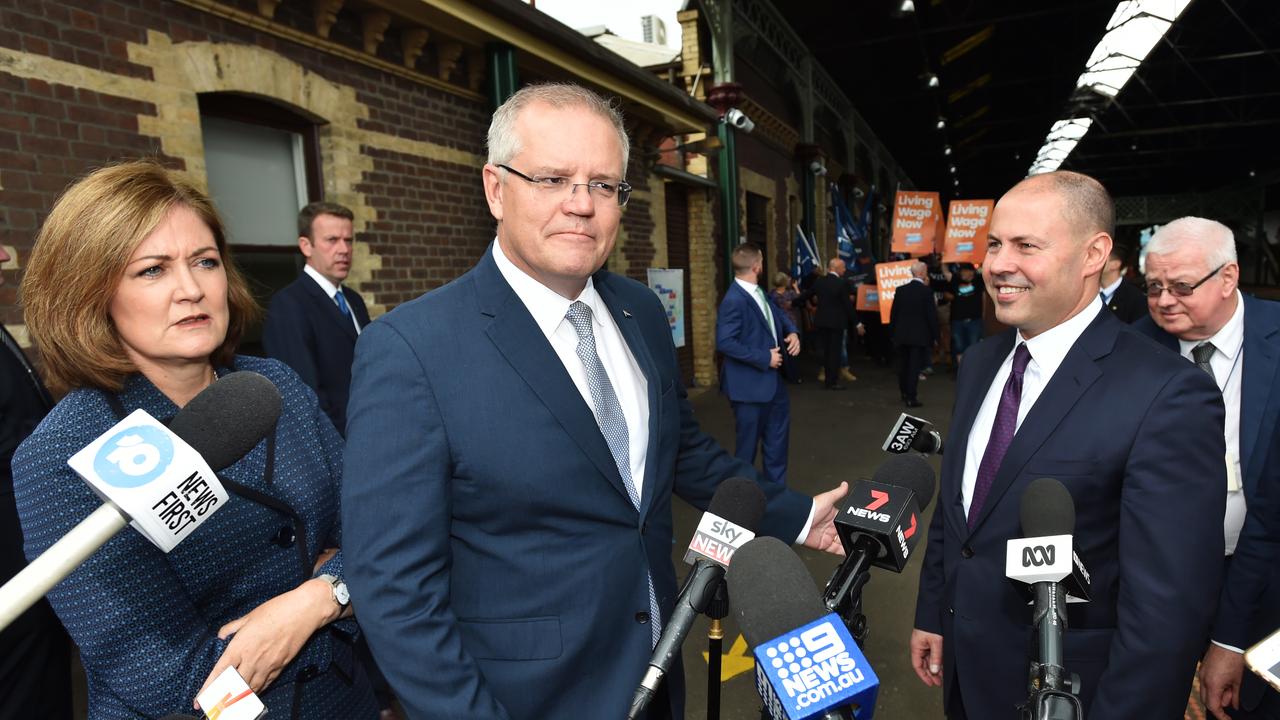Treasurer Scott Morrison to pledge a surplus of tax cuts
Scott Morrison is planning to commit all increases in the budget surplus beyond 2020-21 to personal income tax cuts.

Scott Morrison is planning to commit all increases in the budget surplus beyond 2020-21 to personal income tax cuts, reducing the scope for Labor to trump it with election giveaways, while drawing attention to the burden of Labor’s tax increases.
The Treasurer yesterday made a firm policy commitment that taxes would not be allowed to rise above 23.9 per cent of GDP, with tax cuts provided whenever revenue threatened to surpass that limit.
“We have a speed limit on taxes which we stick to — 23.9 per cent. That is as high as we believe taxes should be as a share of the economy and we will be sticking to that plan,” Mr Morrison said outside the Treasury building in Canberra yesterday.
Although the idea of a tax “cap” of 23.9 per cent was introduced in the first Abbott government budget in 2014, it has always been treated by Treasury as merely a technical assumption, with last year’s budget papers expressly stating it “does not represent a government policy or target”.
The extent of personal tax cut commitments made while the budget is still in deficit is raising business concerns. Business Council of Australia chief Jennifer Westacott warned the government against squandering the proceeds of rising tax revenue.
She said personal tax cuts should not be delivered in the absence of productivity-raising measures such as the government’s corporate tax cuts, and emphasised the need to pay down national debt. Ms Westacott said the priority should be easing the effects of “bracket creep”, as inflation pushed more taxpayers into higher tax brackets.

“We can’t be a country that carries these big deficit and debt bills because of the rigidity and the lack of choices that gives you,” she said.
Deloitte Access Economics has warned that the Turnbull government may be repeating the experience of the Howard government by turning a temporary boost to company tax revenue to permanent personal income tax cuts.
Labor Treasury spokesman Chris Bowen said Mr Morrison’s promise on the tax cap meant the Coalition had given up on its pledge to return the budget to a surplus of 1 per cent of GDP “as soon as possible”. He noted that the government’s own medium-term budget projections show that with the tax cap applied, the surplus would not surpass 0.4 per cent of GDP over the next decade.
“At a time when the global economy has picked up, the government’s budget repair strategy has fallen over,” he said.
Mr Morrison declined to say yesterday whether the commitment to a 1 per cent budget surplus still held. The mid-year budget update released in December showed tax reaching 23.8 per cent of GDP in 2020-21, but the surge in company tax revenue means the threshold is likely to be reached in that year, if not before, even after the government has abandoned its planned increase in the Medicare levy, sacrificing about $4bn in annual revenue.
The government’s projections show that beyond 2020-21, the surplus available for tax cuts would rise by about $4bn a year. The government will be able to direct savings from lower spending to tax cuts before that date.
Mr Morrison contrasted the government’s commitment to curb the growth in taxes with Labor: “Every time you hear the Labor Party say the words ‘budget repair’, know that it means one thing — higher taxes.”
He claimed that in the 2016 election, Labor’s tax plans reached 25.7 per cent of GDP. Labor has announced a series of tax increases, including abandoning the government’s promised company tax cuts, as well as limiting negative gearing, capital gains tax, the use of family trusts and dividend imputation. Combined, these add about 0.5 per cent of GDP to tax revenue over the next four years and considerably more than that over the next decade. Labor’s 2016 election policy redirected tax increases into new spending, while allowing bracket creep to push the budget surplus higher, reaching $20bn by 2026-27.
In repeated budget statements, the Coalition government has shown that tax cuts would be required to keep tax revenue at 23.9 per cent of GDP, but has declined to say what they would be.
Mr Morrison is flagging that the Coalition will seize that opportunity in next week’s budget, denying Labor the chance of using it.
Bill Shorten yesterday said he would prioritise paying down debt and reducing the deficit. “If I had other money to pay, I’d pay it in our schools and our TAFE and our universities. I’d pay it in our hospitals and I’d help reverse some of the freezes in Medicare,” he said. “I’d make sure that Aussie kids can get apprenticeships and I’d make sure that we were building the public transport and the roads we need.”





To join the conversation, please log in. Don't have an account? Register
Join the conversation, you are commenting as Logout